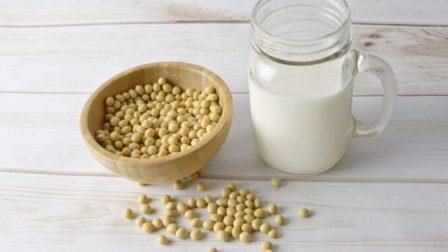
The Power of Veg Protein: A Healthier, Sustainable Source:
In recent years, plant-based diets have gained significant attention due to their health benefits and environmental sustainability. A key component of these diets is veg protein, which provides an excellent alternative to animal-based proteins. Rich in essential amino acids, vitamins, and minerals, plant proteins such as soy, peanuts, and other legumes offer numerous benefits for health-conscious individuals. Let’s explore the advantages of incorporating veg protein into your diet and look at some popular sources.
Protein provides energy and it is the basic building block for muscles and other body components. Throughout every stage in life, our body needs a healthy balance diet of protein. Protein breakdowns into 22 amino acids in digestion process which is used by our body. 9 amino acids are essential amino acids out of 22 amino acids which should consume in the form of diet. Children need protein for growth and development. Adults use protein to build new tissues and to offset the effects of stress.
Benefits of Veg Protein:
-
Heart Health
Plant proteins are naturally low in saturated fats and cholesterol, which makes them heart-healthy. Studies show that diets rich in plant-based protein sources, such as soy and peanuts, are associated with lower risks of heart disease. These proteins also contain essential nutrients like fiber, antioxidants, and healthy fats, contributing to overall cardiovascular wellness. -
Rich in Nutrients
Veg proteins provide a range of important nutrients. For example, soy is a complete protein, meaning it contains all nine essential amino acids. It’s also a great source of calcium, iron, and magnesium. Similarly, peanuts are rich in protein, fiber, and healthy fats, offering a well-rounded nutritional profile. Adding these plant-based proteins to your diet ensures you’re meeting your daily nutritional needs while reducing the intake of unhealthy fats. -
Weight Management
Plant-based proteins are often lower in calories than animal proteins, making them an excellent choice for those looking to maintain or lose weight. Additionally, the high fiber content in legumes like soybeans and peanuts promotes satiety, helping you feel fuller for longer and reducing the risk of overeating. -
Environment Friendly
Choosing veg protein sources like soy and peanuts has a positive environmental impact. Plant-based proteins require significantly fewer resources to produce, such as water and land, and they generate lower greenhouse gas emissions compared to animal proteins. Opting for veg protein is not only good for your body but also beneficial for the planet.
Popular Sources of Veg Protein:
-
Soy
Soy is one of the most versatile and widely consumed plant proteins. It can be found in various forms such as tofu, tempeh, and soy milk. As a complete protein, soy is an excellent choice for vegetarians and vegans. -
Peanuts
Peanuts are a fantastic source of protein, healthy fats, and fiber. They can be consumed as whole nuts, peanut butter, or added to various dishes for a protein boost. While technically a legume, peanuts are widely considered a staple in plant-based diets. -
Lentils
Lentils are rich in protein, fiber, and iron, making them a valuable addition to any plant-based diet. They are easy to cook and can be incorporated into soups, salads, and stews. -
Chickpeas
Chickpeas are another excellent source of plant-based protein. Whether in the form of hummus or added to salads, chickpeas provide a satisfying and nutritious protein source. -
Quinoa
Quinoa is a complete protein that contains all nine essential amino acids. This grain-like seed is rich in protein and can be used in place of rice or as the base of salads and bowls.
Features and Health Benefits of Protein:
- High quality protein source from soy protein isolate with naturally occurring Soy Isoflavones, calcium & Iron, supplies a balanced blend of 8 essential amino acids. These amino acids are not produced in the body and must be obtained from the diet.
- Protein of pulses and grains have low fat contains per servings which is lower in fat than regular servings of protein rich foods such as meat, cheese, eggs and whole milk. You can prepared milk from Soya, Ground Nuts, Sesame seeds, etc.
- Multi grains can be used to prepared milk which will be provide more essential amino acids i.e. 9, those are not produced by the human body.
- Protein Digestibility Corrected Amino Acid Score (PDCAAS) of predigested protein is high such as sprouted food/pulses like sprouted moong, ground nuts, sesame seed, coconut, etc.
- No need to add artificial colours, flavours, and preservatives to prevent the milk.
- According to taste & requirement, people can use any types of milk or sprouted food which will help to fulfill the body need and growth in any stage of life.
Health Benefits of Soy Isoflavones:
- Protects against bone loss.
- Increase bone weight & Mineral levels in the bone
Potential Users of Protein in Naturopathy:
- Children,
- Adolescents,
- Athletes,
- The elderly
- Pregnant and lactating women.
Not Recommended:
Thyroid(Hypo), Liver, uric acid and kidney patient
Conclusion:
Veg protein sources like soy, peanuts, lentils, and chickpeas offer a wealth of health benefits, from improving heart health to supporting weight management. Incorporating these plant-based proteins into your diet is an excellent way to meet your nutritional needs while promoting sustainability. Whether you’re a vegetarian, vegan, or simply looking to reduce your meat consumption, veg proteins provide a nutritious and eco-friendly alternative that contributes to both personal and planetary health.
Note : In Naturopathy Treatment System (i.e. Yuvaan Naturopathy & Ayurved Center), Protein plays a major role to treat the people because protein is building block of the body each and every cells is made from proteins i.e. helps to cure the ailments from the roots such as bone loss, weight gain, maintain growth of the body, good for Pregnant and lactating woman, Kwashiorkor & Marasmus problem in kids, etc.




Very good information regarding the protein. It is very necessary for growth and development
http://www.yuvannaturoayus.com
Very good information for healthy and good life